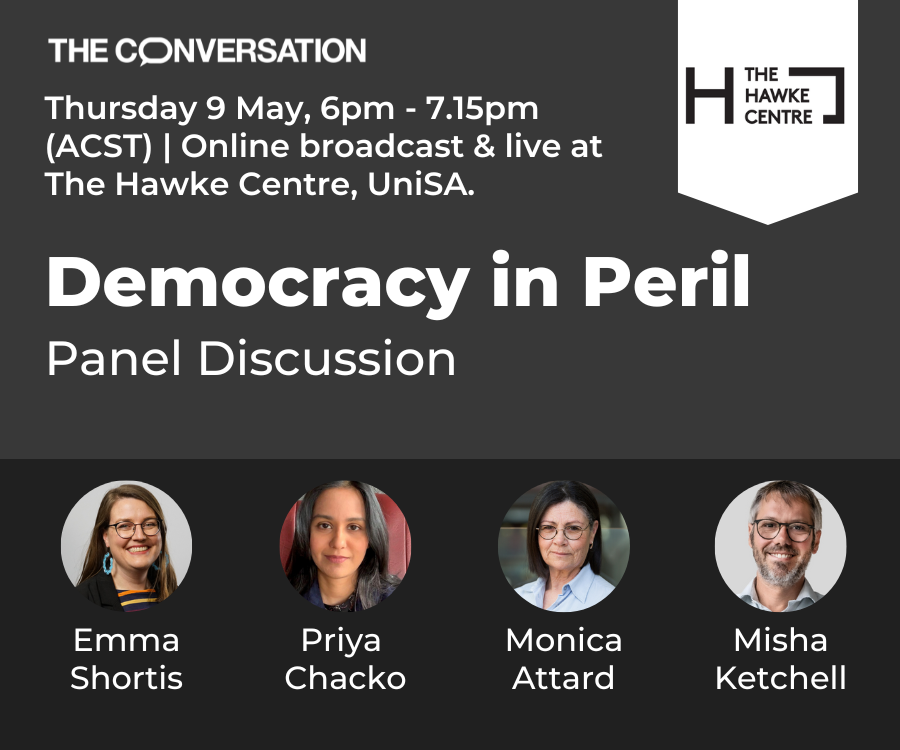|
How do you solve a problem like PFAS?
They’re in firefighting foam, non-stick pans, cosmetics, clothes and packaging – and they keep your phone clear of fingerprints. Per- and polyfluoroalkyl substances (PFAS) were once hailed as wonder materials, but these compounds also have a dark side that’s earned them the nickname “forever chemicals”. The attributes that made them so attractive also makes them hard to clean up. They get into our drinking water, our food, and even into our blood. They don’t degrade. And some are carcinogenic.
In the United States, a landmark settlement will see 3M, one of the largest makers of PFAS chemicals, pay A$16 billion to clean up waterways. But in Australia, so far the public has footed the bill for the cleanup of polluted defence bases and firefighting training grounds.
That needs to change, as UTS experts Sarah Wilson and Rachael Wakefield-Rann write today. The more we look, the more PFAS contamination we find – mines and airports in Western Australia, water treatment plants in Queensland, tunneling projects in Victoria. The expense will be enormous. Why, ask Wilson and Wakefield-Rann, should the taxpayer have to pay?
|

|
Doug Hendrie
Deputy Environment + Energy Editor
|
|

Sarah Wilson, University of Technology Sydney; Rachael Wakefield-Rann, University of Technology Sydney
In Australia, the taxpayer has footed the bill for the forever chemical clean-up so far. But this will have to change.
|

Michelle Grattan, University of Canberra
Tackling violence against women will be the sole agenda item for a Wednesday national cabinet meeting.
|

Hugh Breakey, Griffith University
A new book argues that the first generation to go through puberty connected to their smartphones have had their brains rewired for depression and anxiety.
|

Brigid McCarthy, La Trobe University
While overt sexualisation of women in sports is now rarer, sports media needs a more diverse range of voices to help fight misogyny.
|

Jacob Crouse, University of Sydney; Ian Hickie, University of Sydney
Our study turns a common way of thinking about depression on its head, which may influence how people are treated.
|

Nalini Joshi, University of Sydney
A flawed paper shakes confidence in the foundations of ‘quantum-proof’ encryption – and highlights the need for a new generation of experts.
|

Amanda Davies, The University of Western Australia
So few babies are Australians having that, without migration, Australia’s population would be on track to turn down from 2037.
|

Anastasia Powell, RMIT University; Asher Flynn, Monash University
It has been a distressing time. Australians have been – and will continue – taking action to end gender-based violence. So, are we making any progress? Here’s what the data show.
|

Sara Oscar, University of Technology Sydney
Since last year, I have been working on a project with my Thai mother who migrated to Australia in 1974 while pregnant with me. To fill in the archive, we’ve been looking towards AI.
|
Politics + Society
|
-
Felicity Castagna, Western Sydney University
Development is claiming so many of our old suburban homes that tell the story of Australia.
-
Adrian Beaumont, The University of Melbourne
Queensland Premier Steven Miles’ net-approval rating was the worst for a leader in the state since YouGov started doing polls for The Courier Mail.
-
Amin Naeni, Deakin University
Iranian commentators are warning of a potential economic shock and wider public unrest should Trump resume his ‘maximum pressure’ campaign against the country’s leaders.
|
|
Health + Medicine
|
-
Kim Hemsley, Flinders University; Nicholas Smith, University of Adelaide; Siti Mubarokah, Flinders University
Children with childhood dementia progressively lose all previously acquired skills and abilities, such as talking, walking, learning, remembering and reasoning.
|
|
Science + Technology
|
-
Tristan Salles, University of Sydney; Ian Moffat, Flinders University; Laurent Husson, Université Grenoble Alpes (UGA); Manon Lorcery, Université Grenoble Alpes (UGA); Renaud Joannes-Boyau, Southern Cross University
By detailing the landscape at the time of first humans’ migration into Australia, we can better understand how people travelled and where they settled.
|
|
Environment + Energy
|
-
Gregory Moore, The University of Melbourne
Symbiosis is so much part of life on Earth that it has shaped the evolution and structure of cells. It’s happening almost everywhere we look, including inside our gut.
|
|
Business + Economy
|
-
Peter Whiteford, Crawford School of Public Policy, Australian National University
Unemployment and related payments for working-age people were given a welcome boost in last year’s budget. But they remain well below pensions, and far from adequate.
-
Michael Ryan, University of Waikato
New Zealand’s history of inflation, recessions and unemployment offer clues to what might happen next. Coupled with global events, the outlook is not promising.
|
|
| |
|
|
|
The Conversation AU
Melbourne VIC, Australia
•
Full Time
|

|
|
|
|
| |
| |

|
| |
| |
| |
Featured Events, Courses & Podcasts
|
View all
|
|
|
|
| |
| |
| |
| |
| |
|
|